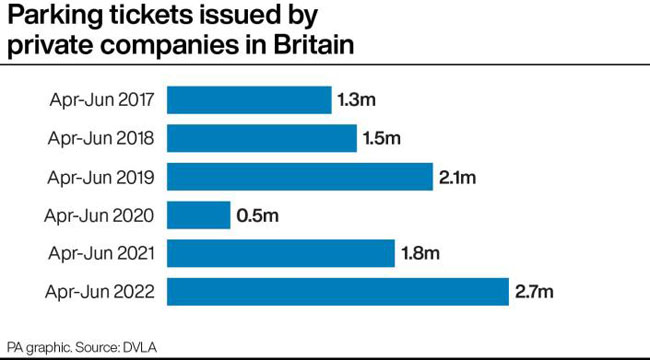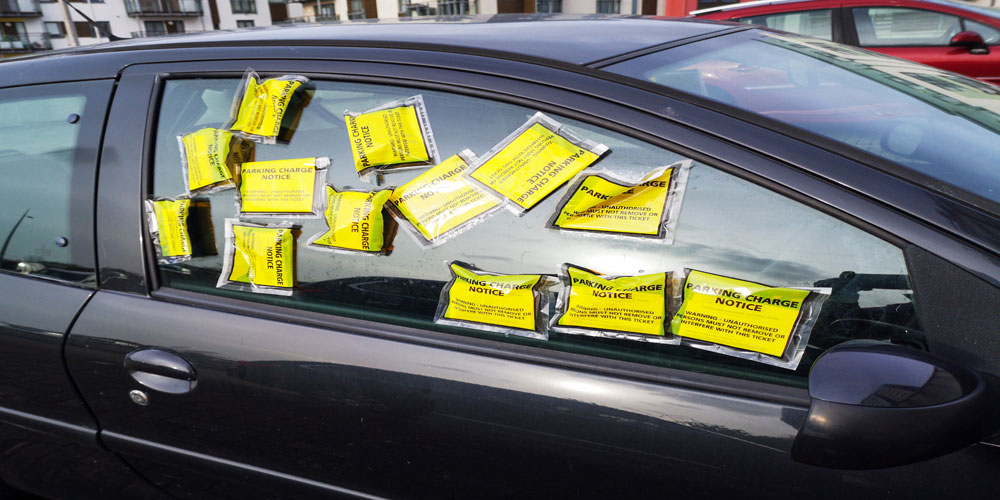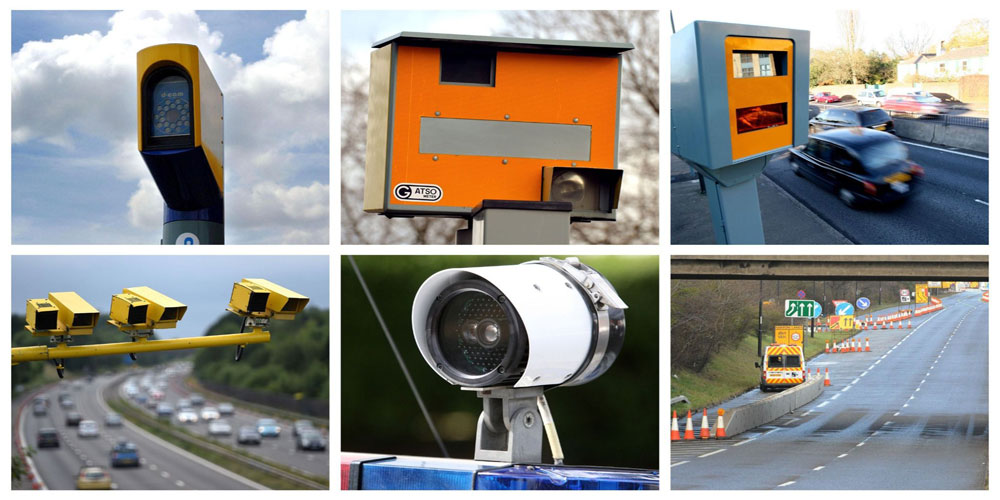Drivers have been hit by a 50% increase in the number of parking tickets issued by private companies. A record 2.7 million tickets were handed out between April and June, analysis of Driver and Vehicle Licensing Agency (DVLA) data by the PA news agency found.
That is an average of nearly 30,000 every day and is up from a total of 1.8 million during the same period last year. If the rate continues, the number of tickets issued annually would reach 10.8 million.

Motoring research charity the RAC Foundation claimed it is “inconceivable” that so many drivers are intentionally breaking parking rules.
In July, the Government withdrew a long-awaited code of practice aimed at eradicating some of the sector’s worst actions following a legal challenge by parking companies.
The DVLA figures show the number of records obtained from the agency by companies chasing car owners for alleged infringements in private car parks such as at shopping centres, leisure facilities and motorway service areas.
Tickets can cost drivers up to £100.
Private parking businesses have been accused of using misleading and confusing signage, aggressive debt collection and unreasonable fees.
RAC Foundation director Steve Gooding said the private car park management sector is “booming”.
“Over the past decade the number of tickets being issued to drivers on private land has jumped from less than two million annually to probably near 11 million this year,” he said.
“This is big business which is seeing more entrants all the time.
“The attraction can only be one thing – the chance to make significant profits before the Government brings in changes – which now appear delayed – to level the playing field.
“It remains inconceivable that, annually, millions of motorists are setting out to run up these tickets of up to £100 each, especially when household budgets are so tight.
“This latest data is a sign of a system that is broken.
Jack Cousens, head of roads policy for the AA, accused private parking companies of “lashing out” and issuing “as many notices as possible” before the code is implemented.






















